DEXRAZOXANE - INJECTION
PHONETIC PRONUNCIATION: (DEX-ra-ZOX-ane)
COMMON BRAND NAME(S): Zinecard
GENERIC NAME(S): dexrazoxane HCl
Uses
USES: Dexrazoxane is used to reduce the risk and severity of heart damage caused by doxorubicin treatment and similar cancer chemotherapy medications. Heart damage limits the length of time you can be treated with doxorubicin. Dexrazoxane allows you to continue doxorubicin treatment for longer. When used for this purpose, dexrazoxane treatment is usually started after you have received several doses of doxorubicin. It is usually not given with the first doses of doxorubicin since doing so may reduce the effectiveness of doxorubicin.
How to use DEXRAZOXANE - INJECTION
HOW TO USE: This medication is usually given by injection into a vein by a health care professional. When this medication is used to reduce the risk and severity of heart damage, the doxorubicin dose is usually given within 30 minutes after the start of the dexrazoxane infusion. If skin contact should occur, wash the area with plenty of soap and water. If irritation occurs, contact your doctor right away. Heart damage may occur at any time with doxorubicin treatment, even years after the end of your doxorubicin treatment. Tell your doctor right away if you have symptoms of heart damage such as sudden nighttime shortness of breath, difficulty breathing while lying down, or shortness of breath when active.
Side Effects
Precautions
Interactions
Overdose
Images
Reviews
Disclaimer
IMPORTANT: HOW TO USE THIS INFORMATION: This is a summary and does NOT have all possible information about this product. This information does not assure that this product is safe, effective, or appropriate for you. This information is not individual medical advice and does not substitute for the advice of your health care professional. Always ask your health care professional for complete information about this product and your specific health needs.
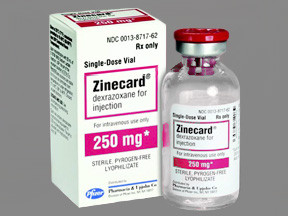
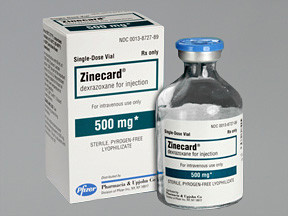

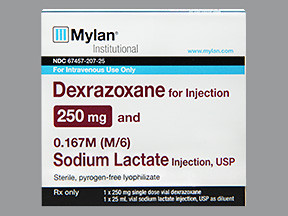
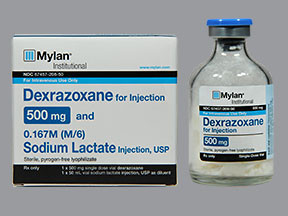
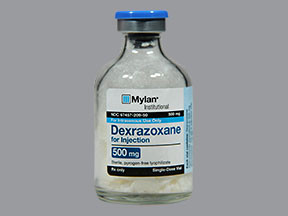
No Reviews Yet